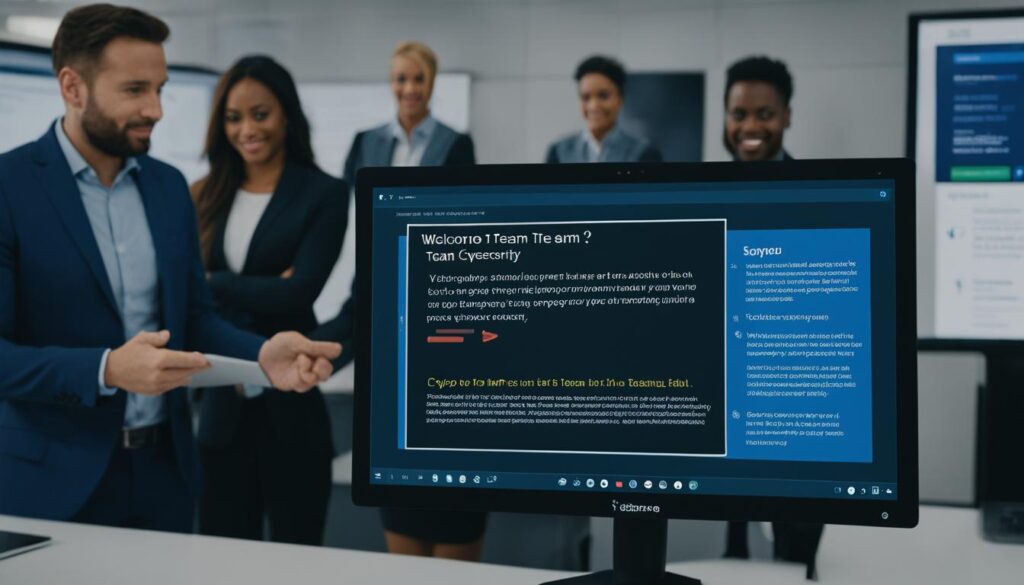Did you know that employee onboarding can have a significant impact on your financial rewards? Many new hires are unaware of the compensation they should receive for the time and tasks involved in the onboarding process. Understanding your rights and employer obligations can help you ensure that you are fairly compensated for your efforts.
According to the Fair Labor Standards Act in the United States, employers are generally required to budget money to pay new employees for onboarding activities. This means that activities such as in-person and online training, filling out new hire paperwork, shadowing veteran employees, and pre-employment “working interviews” should be compensated. However, there are exceptions for voluntary activities that are not job-related, such as company-wide dinners.
It’s important to know your rights and clarify your compensation expectations when starting a new job. In this article, we will explore the topic of onboarding pay, discuss what activities are considered paid time, and highlight the responsibilities of both employers and employees in ensuring fair compensation for onboarding efforts.
Key Takeaways:
- The Fair Labor Standards Act requires employers to budget money for paying new employees during the onboarding process.
- Activities such as training, paperwork, and working interviews should be compensated.
- Voluntary activities that are not job-related may not be paid.
- Clear communication between employers and employees is essential to avoid confusion regarding compensation policies.
- Employers and HR professionals have a shared responsibility in ensuring fair compensation for onboarding activities.
Are Employers Required to Pay Employees During Onboarding?
When it comes to onboarding new employees, one of the common questions that arises is whether employers are required to pay their new hires for the time and activities involved in the onboarding process. The answer lies in understanding the distinction between mandatory and voluntary activities during onboarding and how they relate to compensation.
As a general rule, employers are indeed required to pay new employees for most tasks that take place during the business day as part of new hire orientation and onboarding. These mandatory activities, such as in-person and online training, filling out new hire paperwork, shadowing veteran employees, pre-onboarding orientation, in-person and online lectures, and pre-employment “working interviews,” are considered essential for preparing new hires for their roles and should be compensated.
However, it’s important to note that not all activities during onboarding are mandatory or job-related. Some voluntary activities, such as company-wide dinners or social events, may occur outside of normal business hours and may not be compensable. While these events can contribute to building camaraderie and culture within the organization, they are not directly related to job preparation and may therefore not require compensation.
Clear communication of compensation policies is crucial for both employers and new employees to avoid any confusion or misunderstanding. Employers should make it a point to clearly outline which activities are considered mandatory and compensable, and which are voluntary and non-compensable. By providing this information upfront, employers can ensure that new employees are aware of what to expect in terms of compensation during the onboarding process.
When Do You Get Paid for Onboarding Time and Tasks?
As an employee, you can expect to receive payment for various onboarding activities. These compensable tasks include:
- In-person and online training: Whether it’s attending training sessions at the office or participating in virtual training modules, the time you spend learning the necessary skills and knowledge for your new role should be compensated.
- Filling out new hire paperwork: Completing all the necessary paperwork, such as tax forms and employment agreements, is an essential part of the onboarding process. This administrative task should be paid.
- Shadowing veteran employees: When you spend time observing and learning from experienced colleagues, it is considered a valuable part of your onboarding. This shadowing time should also be compensated.
- Pre-onboarding orientation: Some companies provide orientation sessions or materials to help new hires familiarize themselves with the organization’s culture and policies before their official start date. If these sessions occur during regular business hours, they should be paid.
- In-person and online lectures: Attending lectures or presentations related to your role or industry may be part of your onboarding process. Similar to training, these educational activities should be paid.
- Pre-employment “working interviews”: In certain industries, employers may require candidates to perform job-related tasks or projects as part of the interview process. If these activities happen before you officially start your job and take place during regular working hours, you should be compensated for your time.
It’s important to note that not all onboarding activities are eligible for compensation. Activities that are part of the application process, such as submitting resumes or attending initial job interviews, are typically not paid. Additionally, any tasks performed outside the scope of a normal workday, such as attending voluntary company events or social gatherings, may not be compensated.

What Employee Onboarding Activities Are Not Considered Paid Time?
During the employee onboarding process, it’s important to understand which activities are considered unpaid and not compensable. By differentiating between paid and non-paid tasks, employers can ensure clarity and avoid any misunderstandings with new employees.
Firstly, certain phases of the hiring process, such as the application, interview, background check, and drug testing, are typically not considered paid time. These activities are essential for assessing a candidate’s qualifications and suitability for the role, but they occur before the formal onboarding process begins.
In addition, there are certain events that take place outside normal business hours and are voluntary or not directly related to the job, which may not be compensated. These voluntary events during onboarding, such as company-wide dinners or team-building activities, are often aimed at fostering team spirit and introducing new employees to the company culture but are not considered necessary for an employee’s job performance.
It is important for employers to clearly communicate which onboarding activities are unpaid and non-compensable to new employees. By providing transparency and setting clear expectations, employers can avoid any potential misunderstandings or frustrations regarding payment during the onboarding process.
Remember, unpaid onboarding activities and non-compensable onboarding tasks are part of the overall onboarding experience and contribute to a new employee’s integration into the company. While they may not be compensated, they provide valuable opportunities for socialization, relationship-building, and acclimation to the company’s values and culture.
Examples of unpaid onboarding activities and non-compensable tasks:
- Attending company-wide dinners or social events outside of regular working hours
- Participating in team-building activities that are not directly related to job responsibilities
- Listening to company presentations or lectures on the history, values, and mission of the organization
- Building relationships with colleagues or mentors outside of formal onboarding sessions
While these activities are not considered paid time, they are valuable opportunities for new employees to establish connections, gain a deeper understanding of the company culture, and build strong relationships within the organization.
Next, we’ll explore the responsibilities of hiring managers in ensuring clear communication and understanding regarding onboarding compensation.

Hiring Managers’ Responsibility for Onboarding Compensation
Hiring managers play a vital role in ensuring that new employees are properly compensated during the onboarding process. It is their responsibility to be knowledgeable about which activities should be paid and to effectively communicate this information to new hires. By providing clear guidance on compensation policies, hiring managers can help alleviate any confusion or misunderstandings that may arise.
When it comes to onboarding compensation, hiring managers should be aware of the various tasks and activities that warrant payment. This includes in-person and online training, filling out necessary paperwork, shadowing experienced employees, attending pre-onboarding orientations and lectures, and participating in pre-employment “working interviews.” By understanding the value of these activities and ensuring that they are compensated, hiring managers can demonstrate their commitment to fair and equitable treatment of new employees.
Additionally, hiring managers should collaborate closely with HR professionals to ensure that compensation policies are effectively communicated. HR professionals can serve as a valuable resource in providing guidance and clarification on compensation-related matters. They can also play a role in quality assurance, ensuring that hiring managers are consistently and accurately communicating compensation policies to new hires. This collaboration between hiring managers and HR professionals helps to establish a cohesive and transparent onboarding experience for new employees.
Effective communication of compensation policies is particularly important when it comes to voluntary events and non-compensable activities during onboarding. Hiring managers, with the support of HR professionals, should clearly communicate to new hires which events or activities are voluntary and will not be compensated. This ensures that new employees have a clear understanding of any activities for which they will not receive payment and allows them to make informed decisions regarding their participation.
By taking responsibility for onboarding compensation and effectively communicating compensation policies, hiring managers contribute to a positive and fair onboarding experience for new employees.
Employee Onboarding and Employer Obligations
When it comes to onboarding new employees, employers have specific obligations to ensure compliance with the Fair Labor Standards Act (FLSA) and Department of Labor (DOL) regulations. Understanding these requirements is essential for employers to fulfill their obligations and avoid potential legal issues.
The FLSA mandates that employers pay new hires for hours they are “suffered” or “permitted to work.” This means that any onboarding activities that occur during normal business hours and are mandatory and related to employment should be compensated.
Employers must carefully review the DOL regulations on hours worked to ensure compliance with payroll obligations. It’s important to keep in mind that failing to compensate new employees for onboarding time and tasks that meet the FLSA and DOL requirements can lead to legal consequences and reputation damage.
To assist employers in understanding their obligations during the onboarding process, here are some key points to consider:
1. Determine Onboarding Activities Subject to Payment
- Review FLSA regulations and DOL guidance to identify onboarding activities that must be compensated.
- Ensure that any onboarding tasks that occur during normal business hours and are mandatory and related to employment are included in the employee’s paid time.
- Examples of compensable onboarding activities include in-person and online training, filling out new hire paperwork, shadowing veteran employees, pre-onboarding orientation, in-person and online lectures, and pre-employment “working interviews.”
2. Communicate Compensation Policies
- Clearly communicate the company’s compensation policies regarding onboarding activities to new employees.
- Provide written documentation outlining which onboarding tasks are compensable and which are not.
- Keep the lines of communication open and address any questions or concerns regarding compensation during the onboarding process.
By understanding the FLSA requirements and DOL regulations regarding onboarding pay and time, employers can ensure compliance and establish a positive relationship with their new hires from the start.
Streamlining the Onboarding Process
Efficient onboarding is essential for setting new hires up for success and creating a positive employee experience. By implementing a few key strategies, employers and HR professionals can streamline the onboarding process and ensure a smooth transition for new employees.
One effective approach is to create an onboarding checklist that outlines all the necessary tasks and activities for each new hire. This checklist serves as a guide, making it easier to track progress and ensure that no important steps are missed. By following a standardized onboarding process, employers can optimize efficiency and consistency.
Another way to streamline onboarding is by leveraging online resources. Online onboarding platforms allow new employees to complete important paperwork, watch training videos, and familiarize themselves with company policies and procedures before their first day. This not only saves time but also allows new hires to hit the ground running from day one.
Collaboration between HR and management is vital for a successful onboarding process. HR professionals can work closely with hiring managers to develop an agenda for the new employee’s first day, including a warm welcome, introductions to key team members, and a comprehensive orientation. This collaboration ensures that the onboarding experience is well-planned and that the new employee feels supported from the start.




